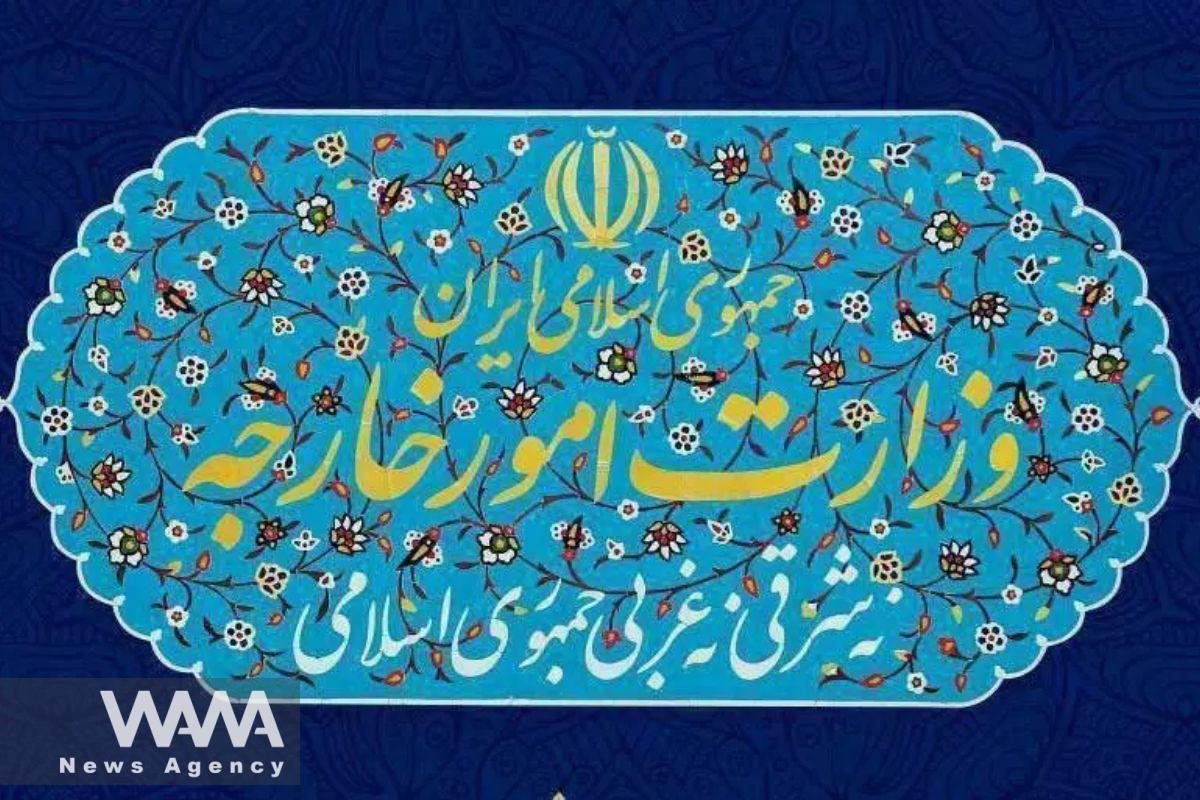Araghchi: Syrian Army’s Inability to Respond Was Unexpected
WANA (Dec 09) – During a televised interview, Iranian Foreign Minister Abbas Araghchi discussed recent developments in Syria. He noted that the situation was anticipated, as analyses and news had predicted the U.S. and Israeli strategies. Our allies were informed about movements in Idlib, and relevant information was shared with the Syrian government. However, he highlighted two unexpected factors: the Syrian army’s ineffective response and the rapid pace of developments, which surprised everyone.
Speaking about the Doha summit, Araghchi said, “Representatives from various nations, including Saudi Arabia, Egypt, and Jordan, attended to discuss the matter. The primary question was why the Syrian army retreated so swiftly. This aspect was truly unforeseen.”
He added, “Even President Bashar al-Assad was taken aback by his military’s performance. It was evident that there was a lack of accurate assessment within Syria itself. In my opinion, the Syrian army fell victim to a psychological warfare campaign.”

Al-Joulani, the Terrorist Leader, Turns into the Zelensky of Deprived Regions
WANA (Dec 08) – “The Zelensky of deprived regions!” This is perhaps the most striking description for the rebranding of Abu Mohammad al-Joulani. A decade ago, Joulani donned camouflage, wore a turban, sported a long beard with sharply trimmed mustaches, embodying the archetypal figure of Sunni jihadist Islamist leaders—from Bin Laden and Al-Qaeda to the […]
Iran’s Continued Support for Syria
Araghchi also elaborated on Iran’s longstanding relationship with Syria, stating, “Over the past 40 years, we have maintained strong ties with Syria. As a key member of the resistance axis, Syria has stood firm heroically, and we have consistently supported it.”
Discussing Iran’s role in combating ISIS, he noted, “The emergence of ISIS as a transregional phenomenon posed an international threat. Iran played a pivotal role in defeating ISIS, with our forces deployed in Syria to ensure regional and national security. This victory, achieved under the leadership of our martyr General Qassem Soleimani, marked a significant milestone.”
Araghchi clarified, “Once ISIS was defeated, most of our forces withdrew from Syria upon the Syrian government’s request, leaving only a limited advisory presence.”

Scenarios for Syria’s Future Governance According to a Turkish Newspaper
WANA (Dec 08) – The shift of power in Syria might unfold through several scenarios regarding the country’s future trajectory, including its division and collapse. The first scenario envisions a Democratic Republic of Syria formed by an alliance of opposition groups with diverse factions and ideologies after the fall of Bashar al-Assad’s regime. The […]
The Astana Process and Political Reforms
Regarding Iran’s role in fostering political solutions, Araghchi said, “Our support has always been centered on encouraging dialogue. We have not interfered in the internal affairs between the Syrian government and opposition groups, offering only recommendations. The Astana process was initiated to facilitate political reforms, and we held its latest meeting just yesterday with the aim of advancing these goals.
Speaking about his advice to Syrian President Bashar al-Assad, the Iranian Foreign Minister stated, “In my recent meeting, I shared several recommendations, particularly concerning the Syrian army. Additionally, I emphasized the need for greater engagement with the Syrian people. It is the people who sustain a government, and this has always been our advice.”
Araghchi reflected on the Astana peace process, saying, “Iran, Russia, and Turkey had agreed to prevent hostilities and act as guarantors of peace and stability. Over the past decade, this process was successful in bringing calm to Syria. However, the recent attacks were contrary to the Astana agreements, which aimed for a different outcome.”

Araghchi: Iran Will Continue Supporting the Syrian People and Government
WANA (Dec 07) – Iran’s Foreign Minister, Seyed Abbas Araghchi, emphasized Iran’s unwavering support for Syria during a press briefing on Saturday. Speaking on the sidelines of the Doha Forum, Araghchi highlighted the fluid and rapidly changing dynamics in the region, reaffirming Tehran’s commitment to assisting the Syrian government and people. “This is a […]
He added, “One of the objectives of the Astana process was to assist the Syrian government and opposition groups in initiating dialogue. Although progress was gradual, it did not advance as effectively as hoped, partly due to the Syrian government’s limited flexibility.”
Araghchi clarified Iran’s role, saying, “Facilitating dialogue with the opposition was a responsibility of the Syrian government. Our support was limited to providing political assistance. It was never Iran’s intention to replace the Syrian army in countering opposition forces.”
Iran’s Stance on the Opposition
Addressing Iran’s position on opposition groups, Araghchi explained, “During discussions in the Astana process, the concept of ‘legitimate opposition’ was introduced. Some opposition groups had been designated as terrorist organizations by the United Nations. The opposition is composed of diverse factions. Yesterday, during Astana talks, we encouraged dialogue between the Syrian government and the opposition, explicitly adding the term ‘legitimate opposition’ to differentiate non-terrorist groups.”

The Fall of Syria and the Future of the Resistance Axis
WANA (Dec 08) – The leadership of Bashar al-Assad in Syria has been both a challenge and an opportunity for the Islamic Republic of Iran and for Assad himself. However, the victory of armed extremist groups could ignite unrest across the region and even Europe. This marks only the beginning of the Resistance Axis’ […]
He said, “Our position has consistently been to encourage Assad’s government to engage and interact with opposition groups that are not classified as terrorists.”
Iranian Foreign Minister emphasized the speed of the Syrian army’s retreat. “All intelligence had been shared in advance, but the army was unable to resist. The issue was largely psychological—something no one expected,” he said.
He elaborated on the Astana summit in Doha, noting that foreign ministers from other countries swiftly arrived after the session, requesting a joint meeting with five additional nations. “There was widespread concern about the developments in Syria and their potential implications for the region, including fears of internal collapse, fragmentation, or even a resurgence of ISIS,” Araghchi stated.

Iran Spare no Efforts for Security and Stability in Syria
WANA (Dec 08) – In a statement released on Sunday, December 8, the Iranian Ministry of Foreign Affairs reiterated its unwavering commitment to supporting security and stability in Syria. The ministry emphasized that it will continue consultations with all influential parties, particularly in the region, to achieve this goal. At the beginning of the […]
Concerns Over Syria’s Stability
Araghchi warned about possible scenarios such as renewed civil war, Syria’s fragmentation, or its transformation into a terrorist haven. He also expressed Iran’s concern over the expansion of Israeli influence in the region. “Resistance groups are closely monitoring Israeli movements,” he noted.
On the broader resistance front, Araghchi remarked, “Resistance has endured numerous challenges. Despite being under siege and facing destruction, Palestinian fighters continue to hold firm, preserving prisoners and maintaining their stance. Hezbollah, too, recovered after significant blows and compelled the Israeli regime into a ceasefire. This resilience is the core philosophy of resistance—an unyielding commitment to liberation.”
He added, “Resistance always finds its way. It is a sacred ideology dedicated to reclaiming its lands, and no amount of pressure can erase it. The recent developments do not close paths for resistance; they merely test its resolve.”
Abbas Araghchi, #Iran‘s FM:
“Our interaction with them (the group that took over Syria) will depend on their behavior, (depend on) what policy will they adopt against the Islamic Republic of Iran, what policy will they have against the Syrian Shiites , what will be the distance… pic.twitter.com/ZgQBSlRMD3
— WANA News Agency (@WANAIran) December 8, 2024
Israel and the Ceasefire
Araghchi addressed potential ceasefire violations by Israel. “Analyses suggest that the Israeli regime may breach the ceasefire, and some violations have already occurred. However, given the resistance’s robust resources, it’s unlikely Israel would escalate tensions immediately. The regime has a 60-day window for withdrawal, and we will see if they adhere to it.”
On Iran’s Perspective Toward Syria’s Future
Araghchi highlighted Iran’s ongoing support for the Syrian people’s sovereignty. “We monitor developments closely. While achieving a political agreement among Syrian factions seems challenging, we advocate for the realization of the Syrian people’s will. The current political landscape allows for numerous possibilities, and some regional countries are likely to take actions stemming from their frustrations. Conflicting interests could hinder the attainment of stability.”
Regarding Iran’s embassy in Syria, he noted, “We are awaiting the establishment of a new government to decide on recognition. Meanwhile, we’ve discussed the security of our embassy, and assurances have been provided for the safety of both the embassy and sacred sites. We are also working to ensure the safety of Iranian nationals and may evacuate them tonight.”
Araghchi: The Syrian Army’s Inability to Respond Was Surprising#Iran‘s Deputy Foreign Minister discussed the latest international developments, particularly those in #Syria. He stated that what was surprising was, first, the Syrian army’s inability to respond effectively, and… pic.twitter.com/uXkwP9DZ2M
— WANA News Agency (@WANAIran) December 8, 2024
When asked whether any messages had been received from the United States, Iranian Foreign Minister Abbas Araghchi said, “Message exchanges always occur through the Swiss embassy and cover various issues, not just Syria.”
Regarding Iran’s potential engagement with Syria’s future government, Araghchi stated, “Our interaction with them will depend on their behavior, particularly their treatment of Shia communities and others. Our policies will be shaped based on their actions.”
Araghchi emphasized the importance of UN Resolution 2254 in guiding Syria’s political future, saying, “Thus far, Syria’s internal matters have been for Syrians to address. Resolution 2254 can serve as an appropriate framework, ensuring that all groups have a role in the political process.”












